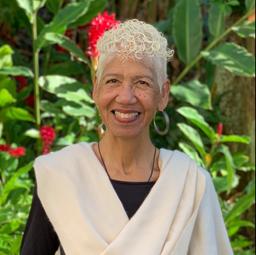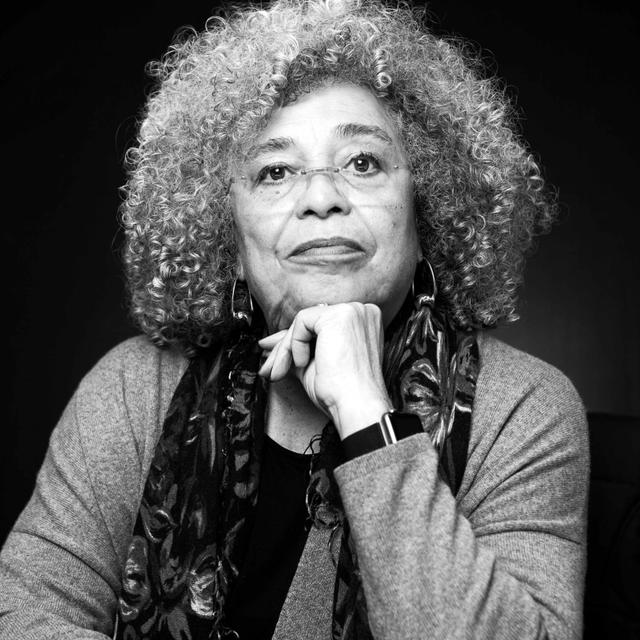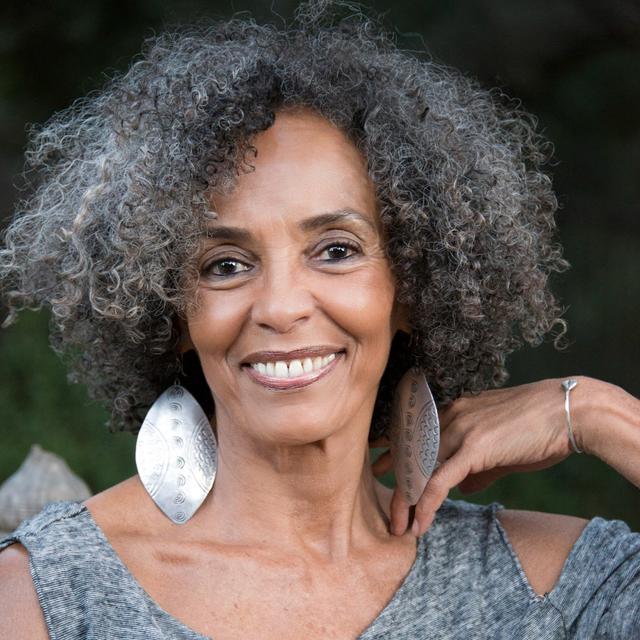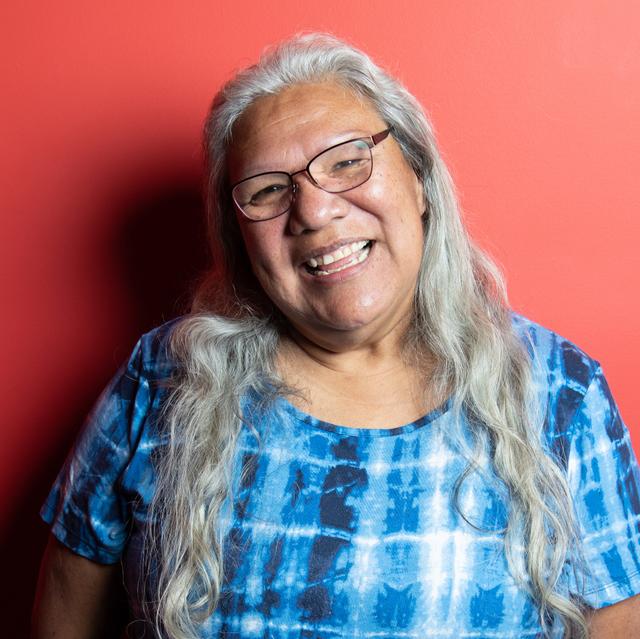Ericka Huggins is a human rights activist, poet, educator, Black Panther leader and former political prisoner. For the past 30 years, she has lectured throughout the United States and internationally. Her extraordinary life experiences have enabled her to speak personally and eloquently on issues relating to the physical and emotional well-being of women, children and youth, whole being education, over incarceration, and the role of the spiritual practice in sustaining activism and promoting change.
As a result of her 14-year tenure as a leader of the Black Panther Party (the longest of any woman in leadership), she brings a unique, complete and honest perspective to the challenges and successes of the Black Panther Party and, its significance today. Ericka’s desire to serve humanity began in 1963, when she attended the March on Washington for Jobs and Freedom. There, she committed to moving from the sidelines to the frontlines in the global human rights movement. In 1968, at age 18, she became a leader in the Los Angeles chapter of the Black Panther Party with her husband John Huggins.
Three weeks after the birth of their daughter, John Huggins was killed and Huggins was widowed. After returning to New Haven, Connecticut to be with John’s family, Ericka was invited by community members and students to open a party chapter there. She accepted the invitation.
In May 1969, Huggins and fellow Party leader Bobby Seale were targeted and arrested on conspiracy charges sparking “Free Bobby, Free Ericka” rallies across the country. The resulting trial, one of the longest and most celebrated of the era, spawned several books.
While awaiting trial for two years before charges were dropped, including time in solitary confinement, Huggins taught herself to meditate as a means to survive incarceration. From this time on, she would incorporate spiritual practice into daily life, her community work and teaching as a tool for change - not only for herself, but for all people.
A lifelong writer and poet, upon release from prison in 1971, Ericka became writer and editor for the Black Panther Intercommunal News Service. In 1974, her book of poetry chronicling her experience of imprisonment and liberation, Insights and Poems, co-authored with Huey P. Newton, was published. Her poetry and writings have appeared in numerous magazines and books.
From 1973-1981, Huggins was Director of the Oakland Community School, a groundbreaking community-run child development center and elementary school founded by the Black Panther Party. She created the vision for the innovative curriculum for the school, which became a model for and predecessor to the charter school movement.
In 1976, Ericka Huggins became both the first woman and the first Black person to be appointed to the Alameda County Board of Education.
In 1979, ten years after her release from prison, Huggins returned to California state, county and federal prisons and jails to share her experiences of yoga and meditation. A focus of her volunteer effort was her work with incarcerated youth. She has continued this work with adults and, in addition, has continued to teach in homes for foster and adopted children and pregnant teens. For the past 20 years, she has also taught relaxation and mindfulness in California youth correctional facilities in addition to many Northern California public school districts and community colleges.
In 1990, at the height of public awareness of HIV/AIDS, Huggins was the first woman practical support volunteer coordinator at the world-renowned Shanti Project. She also developed a unique volunteer support program for women and children with HIV in the Tenderloin and Mission districts of San Francisco. During her time at Shanti Project, Huggins helped develop citywide programs for the support of gay, lesbian, bi-sexual, transgender and questioning youth with HIV/AIDS.
Ericka is the co-author of two books, Insights and Poems (1974) and Comrade Sister: Women of the Black Panther Party (2022). Her biography, Black Panther Woman: The Political and Spiritual Life of Ericka Huggins was published in January 2025.
Ericka is also available for programs featuring the documentary, Black Panthers: Vanguard of the Revolution and leading a lively and engaging post-screening discussion.










